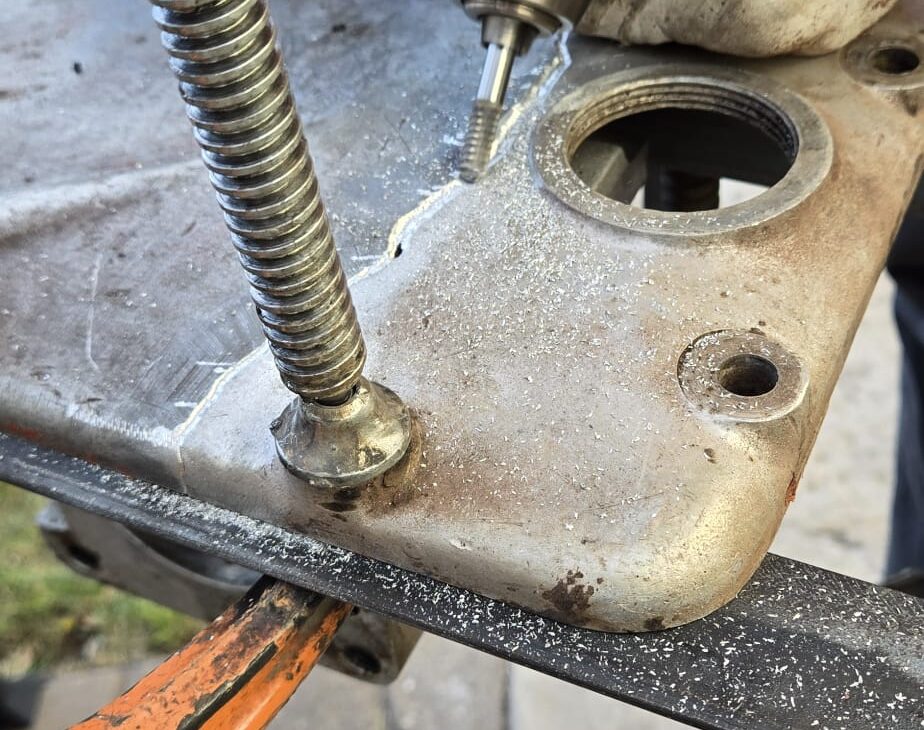Why Welding Matters for Commercial Vehicles
Commercial vehicles such as vans and trucks are the backbone of logistics, delivery, and construction. They carry heavy loads, operate for long hours, and often face rough road conditions. Over time, this continuous stress leads to wear, fatigue, and even structural damage. Welding is one of the most effective methods to restore strength, extend service life, and avoid costly replacements. By reinforcing frames, repairing cracks, and maintaining trailers, professional welders help businesses save money and maximize fleet performance.
When performed correctly, welding ensures that even older vehicles can meet modern demands safely and efficiently. Services such as truck welding and trailer welding are specifically designed to address the needs of heavy-duty transport.
Common Problems in Vans and Trucks That Require Welding
Commercial vehicles face unique challenges compared to personal cars. The most frequent welding-related issues include:
- Frame cracks: Heavy loads and rough roads can create stress fractures in the chassis.
- Rust damage: Corrosion is accelerated by exposure to salt, chemicals, and harsh weather.
- Deformed or bent frames: Overloading or accidents often cause frame misalignment.
- Trailer wear: Continuous hauling leads to cracked welds in joints, floors, and hitches.
- Dock damage: Vans and trucks often experience impacts at loading docks, which can compromise structural points.
By addressing these problems early with professional auto frame repair, fleet owners can prevent larger failures that might sideline vehicles for weeks.
How Welding Extends Vehicle Lifespan
Welding offers more than just fixing visible damage—it restores and often improves structural integrity. Key benefits include:
- Restoring strength: Proper welds return the frame and body to their original durability.
- Reinforcement: Additional plates, gussets, and welds in stress areas increase long-term resilience.
- Cost savings: Welding repairs are far more affordable than frame or vehicle replacement.
- Extended service life: Vehicles can remain in operation for years beyond their expected lifespan.
- Improved safety: A structurally sound frame prevents accidents and costly downtime.
Frame Welding for Heavy-Duty Applications
The frame is the foundation of every commercial vehicle. Whether it’s a delivery van making hundreds of stops per week or a truck hauling tons of materials, frame integrity is essential. Professional frame welding focuses on repairing cracks, reinforcing weak points, and maintaining alignment. This ensures the frame continues to support heavy payloads without risk of collapse or bending.
In many cases, welders also reinforce frames with sleeves, fish plates, or cross-member upgrades, creating a stronger-than-original structure that withstands future stress better than before.
Trailer Welding: Keeping Fleets Roadworthy
Trailers endure immense strain, carrying loads that often exceed the weight of the trucks pulling them. Over time, their welds can fail, leading to unsafe conditions. Trailer welding restores floors, side panels, hitches, and frames, ensuring they remain roadworthy. For fleet operators, this means less downtime, fewer breakdowns, and more reliable deliveries.
Reinforcing trailer welds is especially important in logistics and freight operations, where equipment failure could disrupt entire supply chains.
Special Considerations for Vans
Vans may not haul the same heavy loads as large trucks, but they experience unique stresses. Frequent stops, city driving, and overloading can wear down suspension mounts, body panels, and doors. Welding repairs these issues while reinforcing critical joints. For service companies, delivery businesses, and contractors, van welding ensures uninterrupted daily operations.
Welding Processes Used in Commercial Transport Repairs
Different welding techniques are applied depending on the material, damage type, and environment:
- MIG Welding: Fast and efficient for frame and panel work.
- TIG Welding: Precise, strong welds for high-stress or delicate areas.
- Stick Welding: Ideal for outdoor or thicker materials where flexibility is key.
Each method is chosen based on structural requirements, ensuring the repair lasts under extreme conditions.
Cost vs. Replacement: Why Welding Wins
Replacing a frame, trailer, or entire vehicle can cost tens of thousands of dollars. Welding repairs are far more cost-effective, often extending the lifespan of a vehicle by several years for a fraction of the price. For fleet managers and business owners, this translates into a higher return on investment and more efficient use of resources.
Preventive Maintenance Through Welding
Welding is not just about fixing damage after it occurs. Preventive reinforcement can be applied during regular maintenance. By inspecting frames, trailers, and van bodies, welders can identify weak points early and apply reinforcement before failure occurs. This proactive approach reduces downtime and prevents expensive emergencies.
FAQs on Welding for Commercial Vehicles
- How often should frames be inspected? At least once a year or after any accident, heavy load, or prolonged exposure to harsh conditions.
- Can welding completely restore a damaged frame? In most cases, yes. Professional techniques often make the repaired section stronger than the original.
- Is welding a permanent solution? While no repair is truly permanent, reinforced welds can last for the remaining life of the vehicle if properly maintained.
- Does welding affect vehicle alignment? Professional welding ensures the frame remains aligned, preventing handling or tire wear issues.
- What’s the biggest benefit of welding over replacement? Cost savings and extended vehicle life without sacrificing safety.
Conclusion: Welding as a Business Advantage
Commercial vehicles are investments that generate revenue every day they are on the road. Welding plays a vital role in ensuring they stay in operation longer, safer, and more reliably. Whether it’s truck welding, trailer welding, or auto frame repair, professional welding services provide a cost-effective way to fight wear, extend lifespan, and maximize the return on every vehicle in a fleet.


